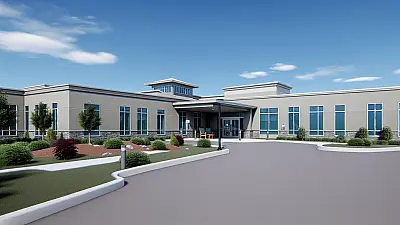BAKERSFIELD, CA - State health inspectors identified critical deficiencies at Kern River Transitional Care that placed all 126 residents at risk for infectious diseases and inadequate medical care, according to findings from an April 24, 2025 inspection.

Systemic Assessment and Care Planning Failures
The facility's quality assurance program failed to identify widespread problems with resident assessments and care planning, despite holding weekly meetings designed to catch such issues. During the inspection, administrators acknowledged that their Quality Assurance and Performance Improvement (QAPI) committee, which convened every Tuesday to review new resident assessments, had not detected these fundamental care deficiencies.
The breakdown in assessment protocols meant residents were not receiving individualized evaluation of their medical needs, functional abilities, and risk factors. Comprehensive assessments form the foundation of nursing home care, determining everything from medication management to fall prevention strategies. Without proper initial and ongoing assessments, care plans become generic rather than tailored to each resident's specific conditions and requirements.
These assessment failures create cascading effects throughout a resident's care. When facilities do not properly evaluate cognitive status, mobility limitations, or chronic conditions, they cannot develop appropriate interventions. This gap can lead to preventable complications such as pressure injuries, malnutrition, dehydration, and medication errors.
Infection Control Protocols Compromised
Inspectors documented failures in the facility's infection prevention measures that exposed the entire resident population to potential infectious disease transmission. The inspection report noted that all 126 facility residents were placed at risk for acquiring infectious diseases due to these lapses.
Proper infection control in nursing facilities requires multiple layers of protection, including hand hygiene protocols, appropriate use of personal protective equipment, environmental cleaning procedures, and isolation precautions when necessary. These measures become especially critical in congregate living settings where vulnerable populations with compromised immune systems reside in close proximity.
The facility's infection control deficiencies occurred despite recent experiences with respiratory illness outbreaks that have heightened awareness industry-wide about the importance of rigorous infection prevention protocols. Standard practices require facilities to maintain active surveillance systems, conduct regular staff training, and ensure adequate supplies of protective equipment.
Quality Assurance System Breakdown
The facility's QAPI committee meetings on April 18 and January 19, 2025, failed to identify or address the assessment and care planning deficiencies later discovered by state inspectors. The Administrator confirmed during the inspection interview that "the above resident assessment deficient practices had not been identified by the facility."
Federal regulations require nursing homes to maintain robust quality assurance programs that systematically identify problems, implement corrective actions, and monitor effectiveness of interventions. These programs should utilize data-driven approaches to detect patterns of deficient care before they result in resident harm. The failure of Kern River's internal quality systems to catch fundamental care delivery problems indicates deeper organizational issues with oversight and accountability.
Medical Care Delivery at Risk
The inspection findings revealed that residents were "not receiving medically necessary services" due to the identified deficiencies. In nursing home settings, medically necessary services encompass a broad range of care including medication administration, wound care, physical therapy, dietary interventions, and chronic disease management.
When assessment and care planning systems fail, facilities cannot ensure residents receive appropriate preventive care, timely medical interventions, or proper monitoring of existing conditions. This situation becomes particularly dangerous for residents with complex medical needs, cognitive impairment, or multiple chronic conditions who depend on comprehensive care coordination.
Additional Issues Identified
Beyond the primary violations related to assessments and infection control, inspectors noted problems with the facility's documentation practices and quality review processes. The QAPI meeting minutes reviewed during the inspection showed inadequate tracking of corrective actions and failure to address known problem areas in resident care delivery.
The inspection also revealed gaps in the facility's systems for ensuring continuity of care and proper communication among care team members regarding resident needs and care plan updates.
Full Inspection Report
The details above represent a summary of key findings. View the complete inspection report for Kern River Transitional Care from 2025-04-24 including all violations, facility responses, and corrective action plans.
💬 Join the Discussion
Comments are moderated. Please keep discussions respectful and relevant to nursing home care quality.